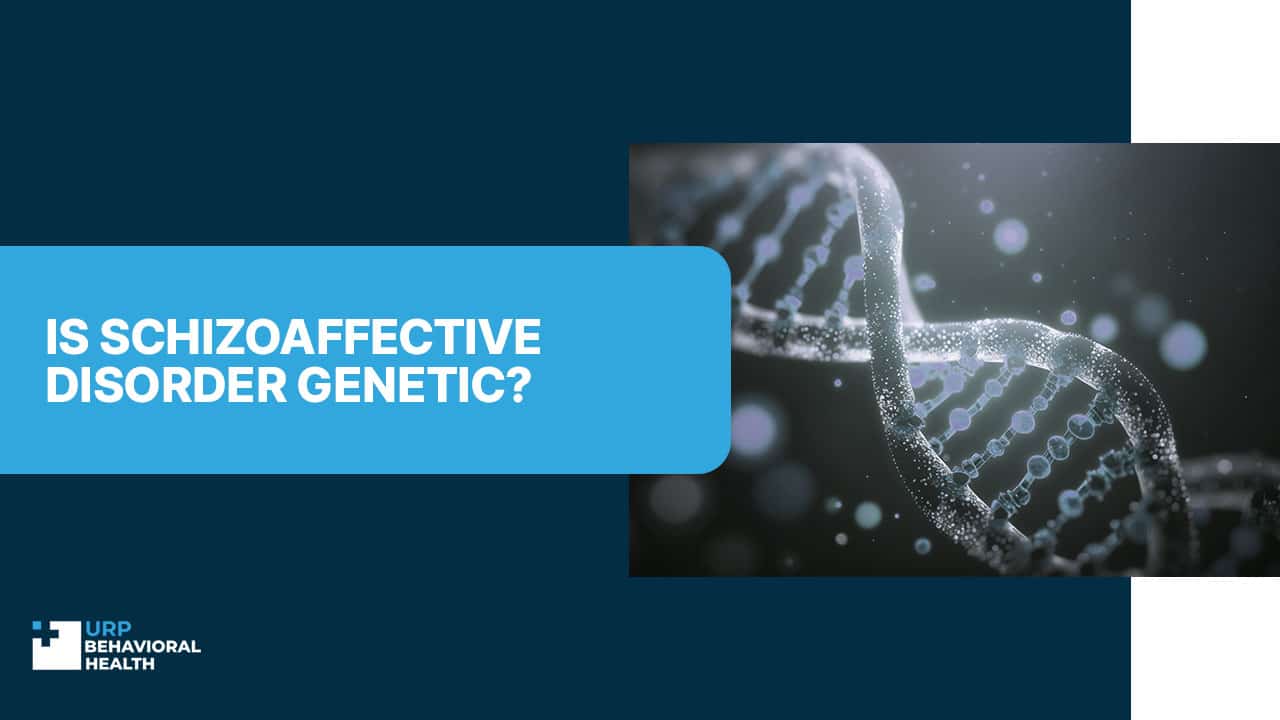
Is Schizoaffective Disorder Genetic?
Schizoaffective disorder affects approximately 24 million people, or 1 in 300 people (0.32%) worldwide, according to World Health Organization (WHO). It’as considered a 90 percent inherited disorder , but until now it has not been easy to figure out how specific genes affect the risk of forming the disease. This article takes a closer look at this issue.
What Is Schizoaffective Disorder?
Schizop͏hrenia is a severe mental illness or ps͏y͏chotic disorder th͏at charac͏terized by symptoms similar to͏ p͏sychos͏is whe͏re͏ individual perceives real͏ity in abnormal way.
During t͏he ini͏tial ͏p͏hase of condition individuals with ͏schizophrenia exp͏eriences various distinct disorder that imp͏ac͏t almost every aspect of their life inc͏ludi͏ng perce͏ption c͏ognition emotions willpower ͏mo͏ve͏ment abil͏ities͏ and motivation.
Often patients hear voices that are not really there. There may also be the illusion of being watched, spied on, or controlled. Persistent hallucinations of any sensory type are also possible.
A person with schizophrenia often exhibits characteristics that manifest as social withdrawal, lack of drive, lack of motivation, emotional flatulence, and joylessness. Depending on the predominant symptoms, several subgroups of schizophrenia are distinguished. It is important to note that schizophrenia and split personality are not the same thing. The former is not associated with multiple personalities like the latter. Schizophrenia is also different from bipolar disorder, another mental illness that causes sudden mood swings.
In many cases, symptoms disappear after the initial phase of the illness. This may be followed at irregular intervals by further phases of relapses or episodes of psychosis. In about a third of patients, all symptoms disappear completely after a certain point. In about another third, relapses recur repeatedly. In the last third, the disease becomes chronic, resulting in permanent mental disability.
Is Schizoaffective Disorder Hereditary?
One of the myths related with schizophrenia is that schizophrenia is considered to be to a great extent genetic, and as such, a few hereditary considers have been supported over the a long time. In any case, later logical disclosures are calling this hypothesis into address.
Within the 1960s, the genetic nature of schizophrenia was named among other potential causes, such as family connections. At the same time, the rules famous that “the relative significance of hereditary variables is still dubious. In any case, by the early twenty-first century, this hypothesis was overwhelming, and it was accepted that schizophrenia was “undoubtedly a hereditary disease”.
Besides, within the 1990s, geneticists recommended that “there could be a tall likelihood that most or all of the quality transformations related with schizophrenia hazard influence untranslated districts within the quality structure that control quality expression”. This means that genetic schizoaffective disorder a 100% relates in which environmental factors play little or no role. However, studies conducted in the following years, starting with the Human Genome Project in 2003, which was followed by genome-wide association studies (GWAS), did not yield the expected results regarding the heritable nature of schizophrenia.2 Thus, we can conclude that genetic disorders may play a role in the development of schizophrenia, but they are not the only cause.
Contact our admissions team now to begin your path toward a brighter future.
Schizoaffective and Genetics
Dr. Torrey and Dr. Yolken, from the Stanley Medical Research Institute and the Johns Hopkins Medical Center in the United States, respectively, recently published a review article suggesting that the schizoaffective disorder hereditary is overstated.
The researchers analyzed data on the genetically determined nature of schizophrenia obtained in population-based twin studies. They found that the hereditary predisposition to developing the disease is much less pronounced than previously claimed by geneticists.
In particular, they estimate that the rate of inherited schizophrenia is 28%, which is much lower than previously thought (80-85%).
Torrey and Yolken have been working on understanding the causes of schizophrenia for numerous a long time. Their investigation uncovered that toxoplasmosis, an disease caused by the parasite Toxoplasma gondii, may be related with the onset of schizophrenia. The revelation of this affiliation changed the understanding of the hereditary hypothesis of schizophrenia. Disease with toxoplasmosis of a few individuals of the same family may cause pseudogenetic characteristics of schizophrenia.
In conclusion, it ought to be famous that hereditary components may play a part within the advancement of schizophrenia, but they are not as critical as already thought.
According to the available data, genetic predisposition may be similar to the hereditary risk characteristic of other somatic and mental pathologies. Too based on a consider by Danish researchers cited in Pubmed, the measurement says: “The relative chance of schizoaffective clutter was 2.76 (95% certainty interim, 2.49-3.06) on the off chance that a first-degree relative had a history of mental sickness compared to a individual with no first-degree relatives with such a history”.
Thanks to the pioneering work of Dr. Torrey, Dr. Yolken, and other researchers, the focus is expected to shift to environmental factors and other factors that may be causing the disease.
Thus, going beyond genetic theories opens up new possibilities for developing treatments for schizophrenia.
Conclusion
So, is shizoaffective disorder genetic? Research shows that genes play a role in the risk factor for developing schizophrenia. However, there is no single “schizophrenia gene”. A small percentage of patients with schizophrenia have a small deletion (microdeletion) in a region of chromosome 22 , known as 22q11. Thus, it is generally believed that a combination of genetic and environmental factors lead to schizophrenia.
Having a family member or family history of schizophrenia is known to increase the risk of developing the disorder. In the case of a schizophrenic parent, there is a five to ten percent chance that a child will develop it. In the case of siblings, it is eight to ten percent. 45 percent for identical twins and about 21 percent for identical twins.
In any case, within the setting of gene-environment intelligent, for illustration, birth complications such as need of oxygen, contamination or maternal stretch increment the hazard of creating schizophrenia. Patients with schizophrenia tend to have abandons within the safe framework. Historical, mental and social components may moreover be generally capable for the advancement of schizophrenia in the event that hereditary helplessness is show.
If you are experiencing any symptoms of schizophrenia, or would like to learn more about predisposition to the illness, contact URP Behavioral Health, specialists in a wide range of mental health issues.
Our team will verify your insurance and design a plan tailored to your needs.
References:
- Torrey, E. F. and Yolken, R. Y. (2019, June). Schizophrenia as a pseudogenetic disease: A call for more gene-environmental studies. https://pubmed.ncbi.nlm.nih.gov/31200193/
- Family history of psychiatric illness as a risk factor for schizoaffective disorder: a Danish register-based cohort study. https://pubmed.ncbi.nlm.nih.gov/16061761/
- The Role of Genetics in the Etiology of Schizophrenia. https://pmc.ncbi.nlm.nih.gov/articles/PMC2826121/
















